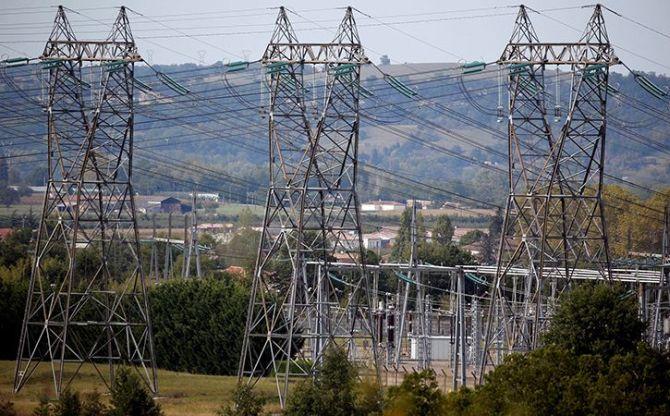The improving outlook for the power sector has caught the interest of dividend yield funds.

In the first four months of the current financial year (2023-24, or FY24), five of the six largest dividend yield funds have shown a notable increase in their exposure to stocks within the power sector.
Some have even introduced new stocks to their portfolios.
While certain stocks in the sector have consistently offered high dividends, recent months have witnessed increased interest from mutual funds (MFs) due to the anticipation of accelerated power demand growth.
This is attributed to the government’s focus on manufacturing and the growing adoption of electric vehicles (EVs).
“The power sector appears appealing for the next three to four years, considering the cycle has just begun.
"We have maintained a bullish stance on power stocks for the past three years and continue to do so.
"The sector still presents names at attractive valuations and dividend yields,” says Mittul Kalawadia, senior fund manager at ICICI Prudential Asset Management Company.
At the end of July, the dividend-yield schemes of Franklin Templeton (16.4 per cent) and ICICI Prudential (11.7 per cent) held the highest allocation of power sector stocks among the larger funds.
At the end of March, their exposure stood at 15.6 per cent and 8 per cent, respectively.
In the case of other schemes — those from SBI, HDFC, UTI, and Aditya Birla Sun Life — exposure ranged from 3.7 per cent to 7.9 per cent.
Leading choices among fund managers included Power Grid Corporation, NTPC, NHPC, and CESC, which offer dividend yields of 3.3-5.9 per cent.
Dividend-yield MFs are equity schemes designed to invest in companies with a consistent record of high dividend declarations.
Interest in power stocks is also emerging from other asset managers.
Vikas Gupta, chief executive officer of OmniScience Capital and smallcase manager, affirms that the sector has long-term growth drivers in place.
“By 2030, the government aims for electric vehicle (EV) sales to constitute 30 per cent of private car sales.
"This, combined with other factors like rising household consumption and electrification of remaining railway tracks, will augment power demand,” he said.
Furthermore, the government has introduced initiatives such as incorporating solar module manufacturing into the production-linked incentive scheme and issuing sovereign green bonds.
Additionally, the Centre has permitted states to raise additional funds to encourage reform initiatives.
During 2021-22 and 2022-23, 12 states were granted additional borrowings totalling Rs 66,000 crore to facilitate such reforms.
For FY24, the government has earmarked Rs 1.43 trillion for this purpose.
Analysts suggest that investors with a long-term horizon and a high risk appetite might consider exploring high-yielding power stocks.
While most companies in the power sector yield around 3 per cent in dividends, Gupta cautions that high yields are not guaranteed to persist.
Overall, most dividend-yield funds have higher allocations towards financial services, information technology, fast-moving consumer goods, and automotive.
In the case of SBI’s dividend-yield fund, HDFC Bank, Infosys, and Tata Consultancy had the largest weights in the portfolio.
Disclaimer: This article is meant for information purposes only. This article and information do not constitute a distribution, an endorsement, an investment advice, an offer to buy or sell or the solicitation of an offer to buy or sell any securities/schemes or any other financial products/investment products mentioned in this article to influence the opinion or behaviour of the investors/recipients.
Any use of the information/any investment and investment related decisions of the investors/recipients are at their sole discretion and risk. Any advice herein is made on a general basis and does not take into account the specific investment objectives of the specific person or group of persons. Opinions expressed herein are subject to change without notice.










